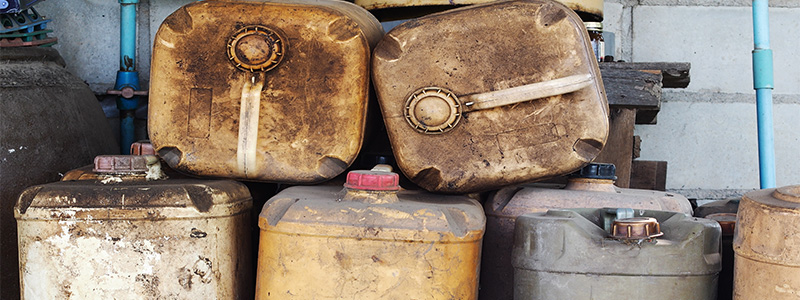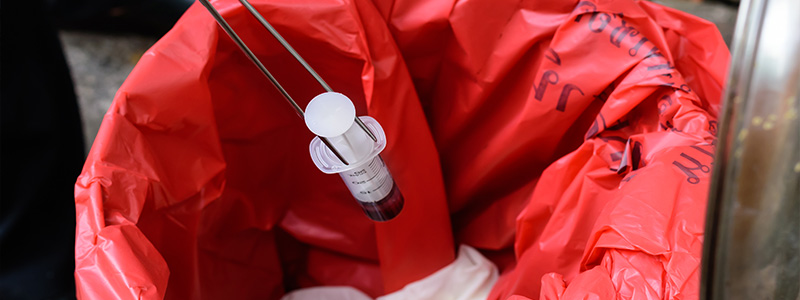
Tips On Storing Waste, Part 2: Liquid And Hazardous Waste
20th Sep, 2017
This week sees the second and final instalment in our series on the best ways to store waste. Last week we talked about solids and food, and this week we’re talking about the best ways to handle liquid and hazardous waste – both of which can be equally tricky but obviously equally vital to handle properly! Plus, just to round everything off nicely, we’ve got some great handy hints on dealing with waste in general.
How To Contain Liquid And Hazardous Waste

The very first step is one that’s arguably one of the most crucial, but is still often overlooked; and that’s to use proper waste containers! Sometimes, containers like a normal household bin won’t cut it. Thin plastic can be prone to rupturing and splitting, potentially spilling your liquid waste everywhere; not a pleasant scenario by any stretch of the imagination. The good news is that they’re far from your only option – you can store waste materials safely and securely in intermediate bulk containers (sometimes known as IBCs), or drums. Don’t forget, skips are always a viable option too!
Once you’ve got your container, you’ve also got the weather to consider too. Rain can leak into your waste and then leak out again, causing contaminated runoff. This is a particular problem if your waste is hazardous or toxic in some manner, because you definitely don’t want that pooling around your back garden. Store your waste under a waterproof cover to stop it – if you’ve got a roof or an awning of some sort, all the better, but a tarpaulin will work just as well. In fact, it’s a good idea to put a tarpaulin under them too. That way, you can stop liquid waste from escaping into drains or watercourses, or into the ground surrounding it. As a side note, stored water acts as a draw for pests like rats and insects, too. It’s just one more reason to make sure you cover all containers!
Remember, a golden rule is that you should try not to leave chemicals or hazardous waste exposed to the open air at all. It can pose serious risks to both animals and humans, especially if you have young children in the house.
Handy Tips On Storing Waste

There are a few more ways you can make storing waste generally easier for yourself too, whatever the contents happen to be. Clearly labelling your containers, for example, is not only helpful for you in terms of remembering what’s in them, but also helps anyone picking them up to take appropriate measures to handle them correctly. Also, make sure that your waste can’t blow away. This is mostly relevant for food or solid waste – if you’re storing them in an open-topped container like a skip, make sure it’s covered and/or netted.
On that note, most waste containers tend to be pretty sturdy anyway, but it’s still a good idea to make sure they’re not going to be subject to any unexpected impacts. For example, if a waste barrel is placed in a doorway and someone walks into it, you might have a very unpleasant mess to clean up later.
A Few Final Words
We could go on forever, but we’re sure you get the picture! As you might expect, the best way to store waste often comes down to a matter of common sense, but it’s still useful to know the finer details, just in case. As ever, a good-sized skip is one of the best waste containers available, and here at Skip Hire Network we have them in good supply! Booking is easy, too; all you have to do is enter your phone number and postcode into our website, and from there it’s a simple matter to finalise the arrangements. So then – ready to get started?
Don’t forget to follow us on Twitter: @SkipHireNetwork